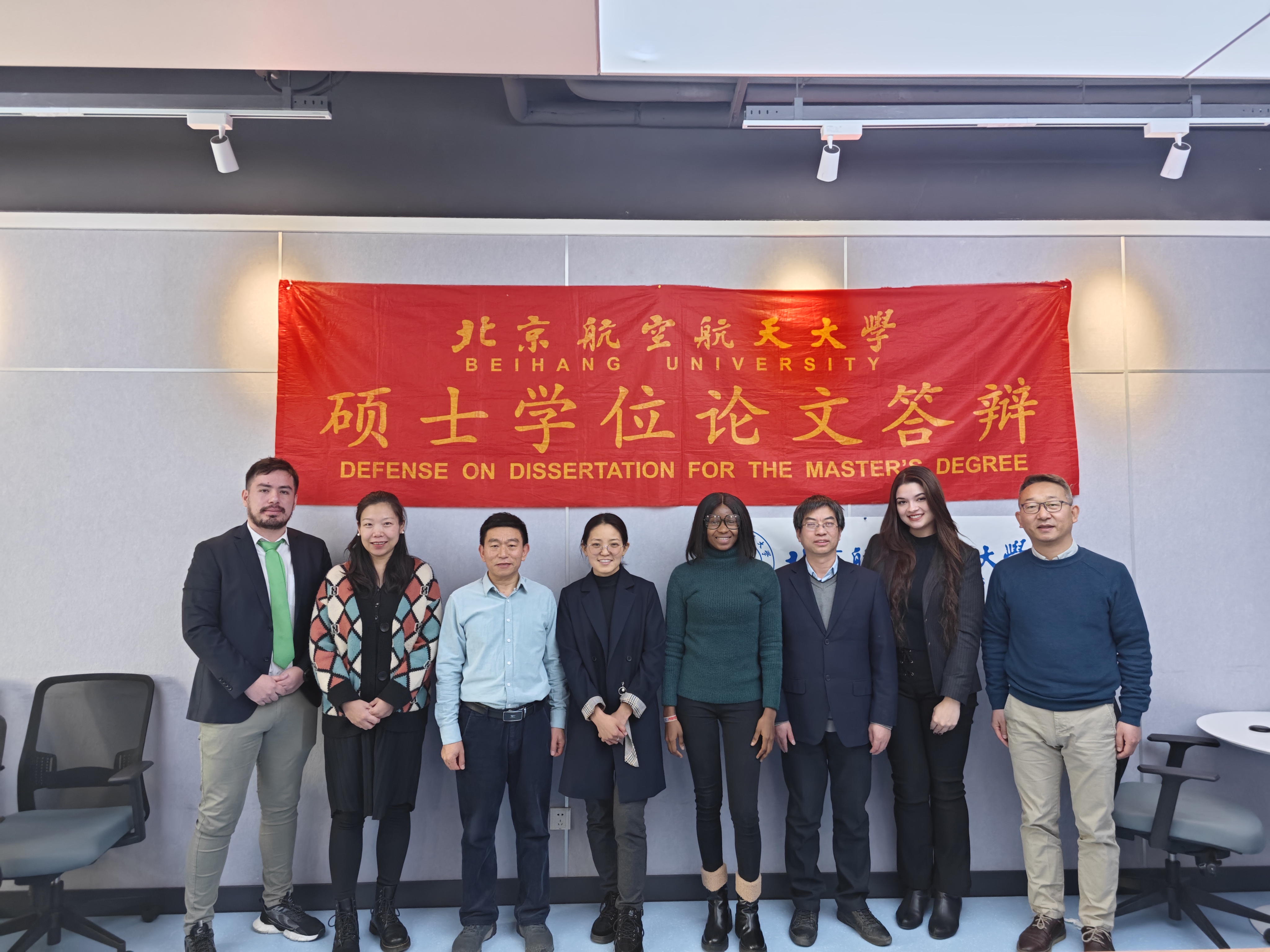In December 2023, eighteen (18) MASTA participants of the Centre majoring in five directions, including Global Navigation Satellite Systems (GNSS), Remote Sensing and Geographic Information System (RS&GIS), Micro-satellite Technology, Space Science and Environment, and Space Law and Policy, successfully defended their theses.
During the defense, the participants systematically explained their thesis research work from the following aspects, such as significance of the research subject, research method and conclusion, etc. The experts of the Defense Committee made pertinent comments and targeted questions on the research framework, logical structure, research method, writing standard and so on, and put forward some opinions and suggestions on research work and thesis writing of the participants.


The whole defense process was transparent, rigorous, fair, and in line with the norms. Through the collective evaluation of the master’s theses of the participants, the Defense Committee considered that all these eighteen (18) participants were able to carry out in-depth study on their research topics in combination with the actual situation of their home countries, and achieved the training requirements and objectives of Programme on Space Applications. After a secret ballot, all of the eighteen (18) participants successfully defended their master’s theses. In addition, one of the theses was recommended as the University-level Outstanding Master’s Thesis.



To further improve the thesis quality of the participants, after the defense, the Centre required the participants make continued revisions and improvements to their theses in response to the questions raised by the Degree Review Committee. In this regard, the Centre set up a Thesis Review Committee, organized experts to conduct a second review of their theses, demanded participants to make oral reports on the revision of their theses to ensure that they made targeted modifications. These initiatives had further standardized the format of master’s theses and improved their quality to some extent.
The participants attending this defense came from nine (9) countries, namely, Algeria, Bolivia, Brazil, Indonesia, Jordan, Mongolia, Nigeria, Pakistan, and Peru. They were mainly elected by APSCO, space-related institutions and government departments of the Member States of the Centre, and serve as young professional and technical backbones and government reserve talents in the field of space technology in their home countries.

